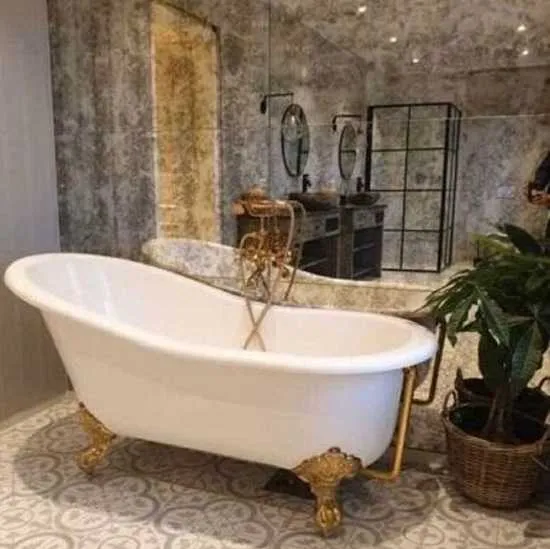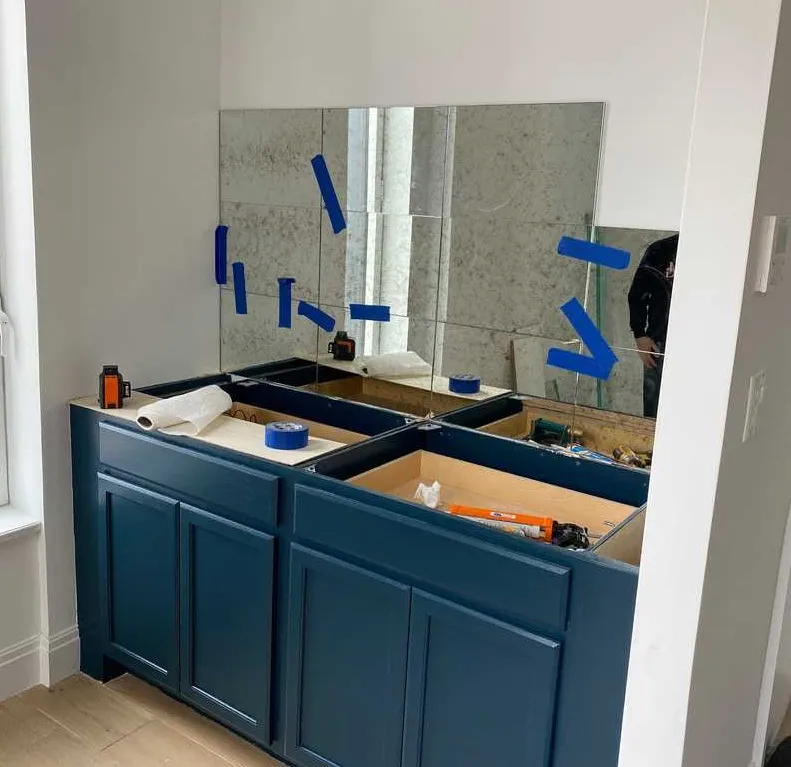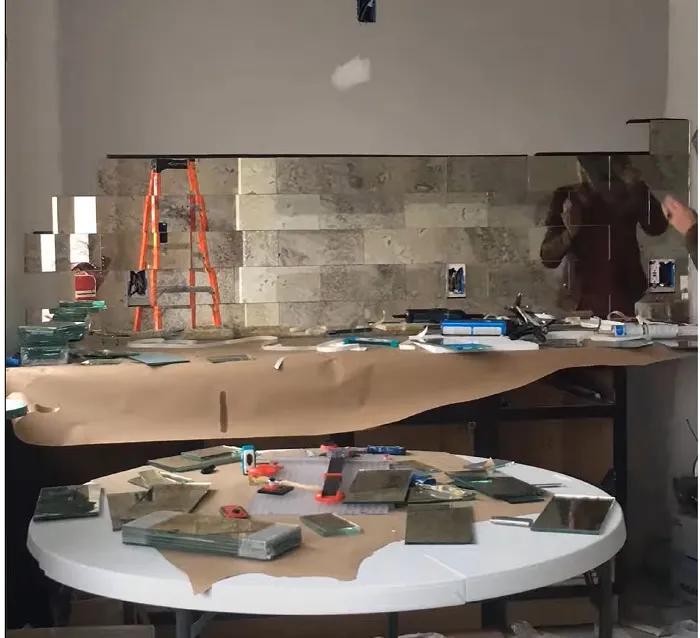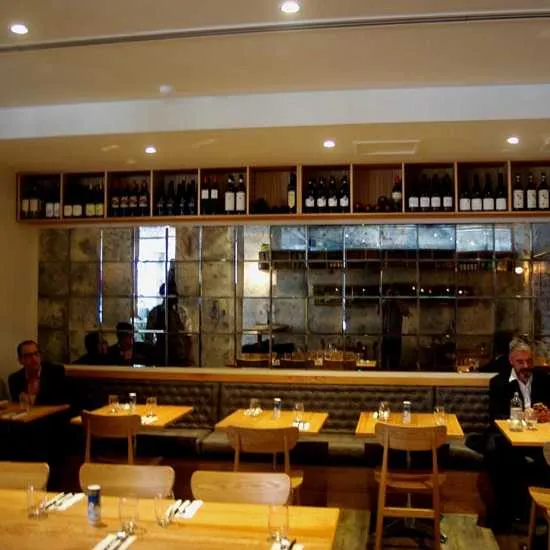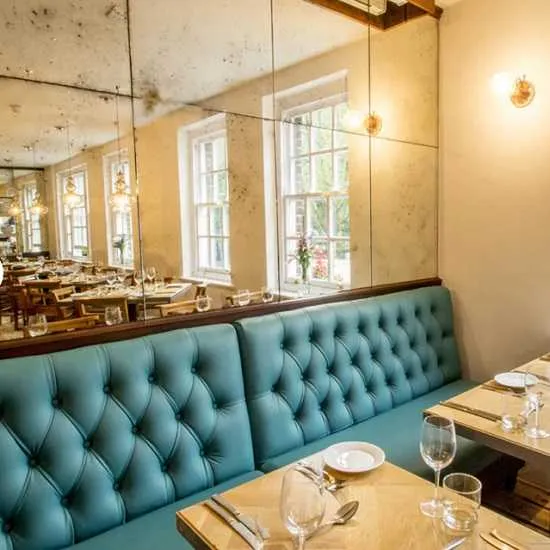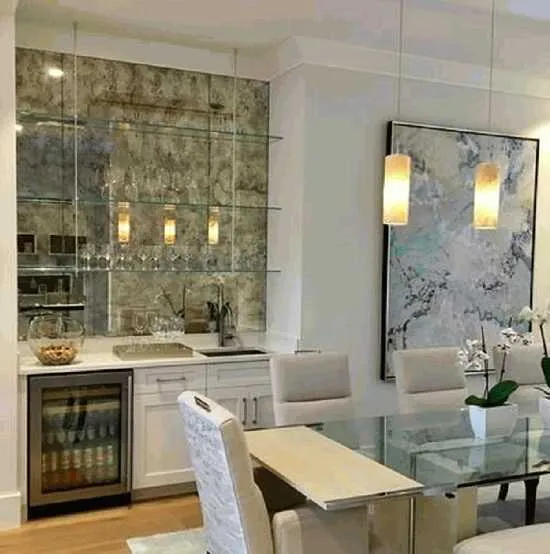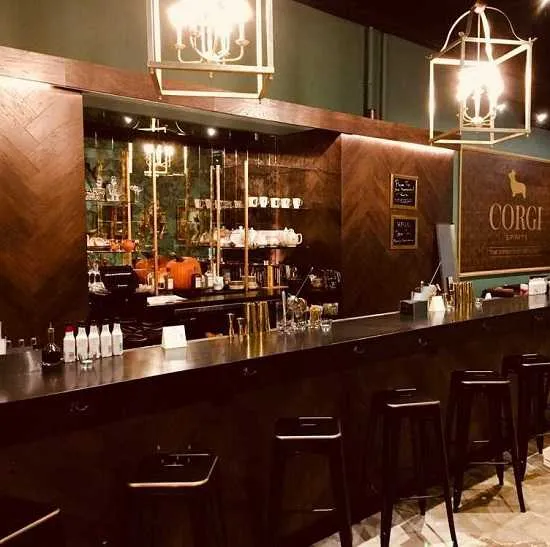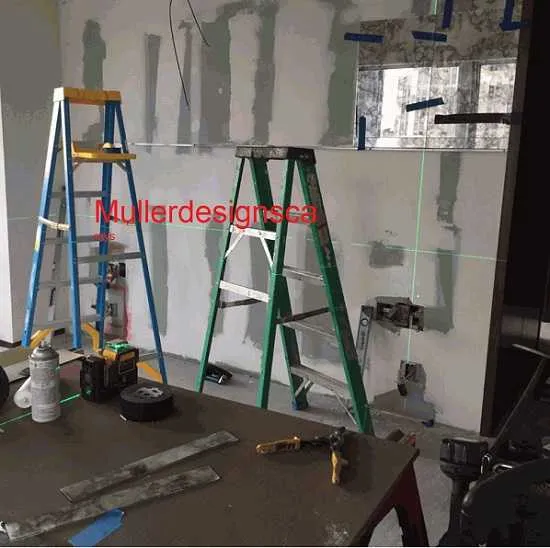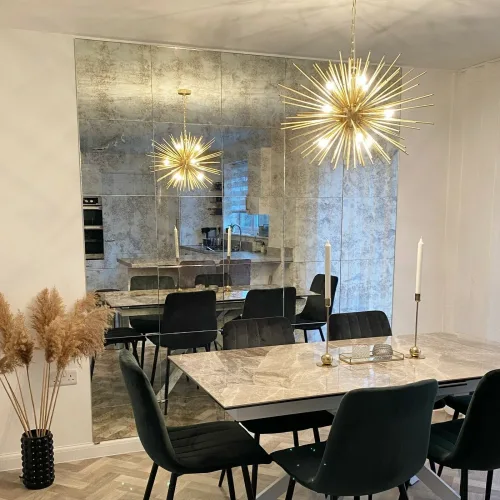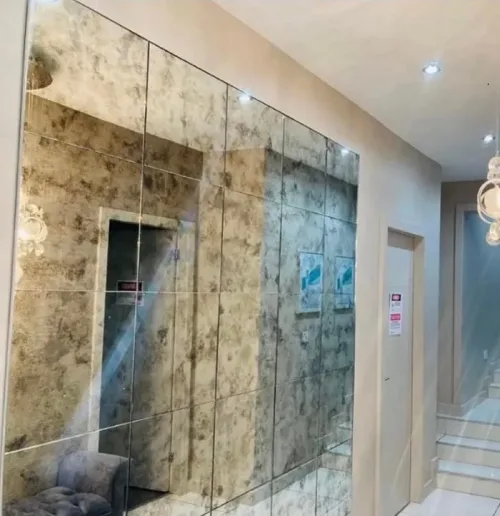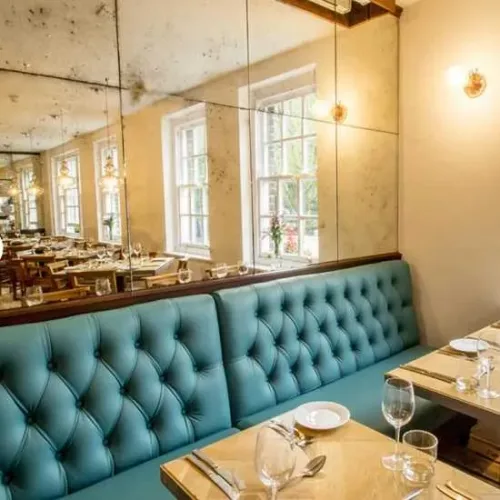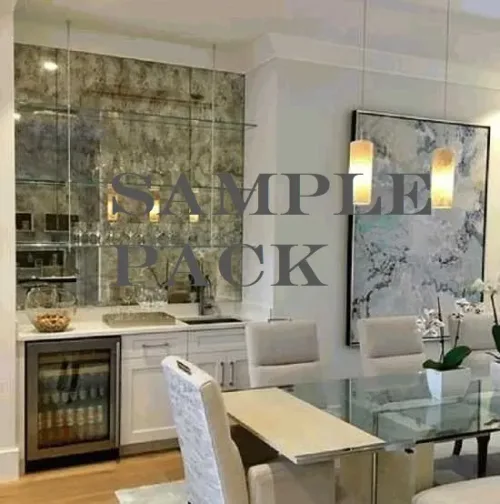Update your commercial space, bar, restaurant, hotel airport kitchen, living room , and much more. They are so many ways you can use these mirrors to create something unique,
There are two ways to install antique mirror tiles or glass.
The first is to use liquid nails silicone glue, and the second is to use high-quality double-sided tape.
It is recommended to hire a professional for installation.
Don’t hesitate to get in touch with us for any questions or custom orders
What are Antique Mirror Glass and Antique Mirror Tiles Unveiling Its Vintage Elegance and Craftsmanship

In the world of interior design and home decor, few elements evoke a sense of timeless charm and elegance quite like antique mirror glass. With its distinctive appearance and historical significance, antique mirror glass has become a coveted addition to both traditional and contemporary spaces. This article delves into the captivating world of antique mirror, exploring its origins, characteristics, restoration, and its enduring appeal in today’s design landscape.
Origins and Evolution
The origins of antique mirror tiles can be traced back centuries, to a time when mirrors were considered luxuries reserved for the wealthy elite. The ancient Egyptians, Greeks, and Romans crafted mirrors from polished metals like bronze and silver, creating reflective surfaces that provided a glimpse into their own image. Over time, the techniques and materials used to create mirrors evolved, eventually leading to the production of glass mirrors during the Middle Ages.
One of the earliest techniques used to create antique mirror glass involved applying a reflective metal backing, often made from silver or mercury, to the back of a sheet of glass. This created a reflective surface that could capture and reflect light, creating a mesmerizing play of light and shadows. As technology advanced, the process of mirror-making became more refined, leading to the creation of intricate and ornate mirror frames that further enhanced the beauty of these reflective surfaces.
Manufacturing Techniques
Antique mirror glass is known for its unique and irregular reflective patterns, often featuring subtle distortions, foxing (aging spots), and beautifully aged patinas. Achieving these distinctive characteristics requires a blend of traditional craftsmanship and chemical processes.
One of the most notable techniques used in antique mirror glass production is the “distressed mirror” method. This technique involves intentionally damaging the reflective coating to create a weathered appearance. Acid etching and controlled oxidation are often used to achieve the desired level of distress, resulting in a vintage and time-worn aesthetic.
antique mirror comes in a variety of styles, each reflecting the design trends of its respective era.
Characteristics and Distinctive Features
Antique mirror tiles possesses a unique set of characteristics that distinguish it from modern mirror varieties. One of its most notable features is its “foxing,” a term used to describe the charming spots, blemishes, and patterns that develop on the glass surface over time. These imperfections are often a result of the natural aging process, as well as the materials used in the mirror’s production.
The aging process of antique mirror glass contributes to its enchanting allure. The gradual deterioration of the reflective backing can create a soft and dreamy patina, imbuing the mirror with an air of mystery and history. This patina can range from subtle hints of discoloration to more pronounced areas of distress, adding to the mirror’s character and uniqueness.
Enduring Appeal and Contemporary Use
The allure of antique mirror glass lies in its ability to add depth, character, and a touch of nostalgia to modern interior design. These antique mirror seamlessly blend with various design styles, from traditional to eclectic, creating a sense of timelessness and intrigue. Designers and collectors appreciate the unique imperfections and intricate detailing that only antique mirror glass can offer.
In contemporary interiors, antique mirror tiles is often used in a variety of ways:
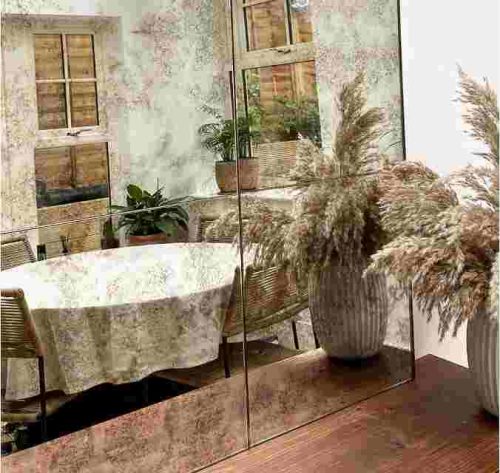
- Statement Wall Mirrors: Large antique mirror glass panels can be used as statement pieces on walls, creating a focal point and enhancing the overall ambiance of a room.
- Furniture Accents: Antique mirror glass can be incorporated into furniture pieces such as cabinets, side tables, and dressers, adding a touch of vintage elegance.
- Backsplash and Tiles: Antique mirror glass tiles can be used to create stunning backsplashes in kitchens and bathrooms, infusing a sense of luxury and history.
- Decorative Art: Framed antique mirror glass can serve as captivating decorative art, reflecting light and enhancing the visual appeal of a space.
Bottom Line
Antique mirror tiles stands as a testament to the artistry and craftsmanship of generations past. Its rich history, distinctive characteristics, and enduring appeal make it a sought-after element in interior design. Whether adorning the walls of a stately manor or serving as a statement piece in a chic urban loft, antique mirrors continues to capture the imagination and hearts of those who appreciate the beauty of the past reflected in the present. As we navigate the ever-evolving world of design, the allure of antique mirror glass shines on, reminding us of the timeless elegance it brings to our spaces.

